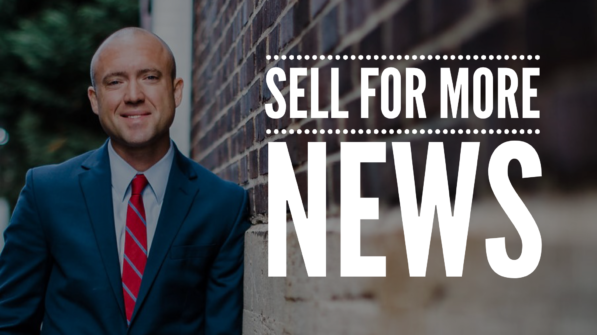Sell for More News is a weekly blog series with interesting information from the world of commercial real estate.
A conversation topic in today’s real estate community is the potential emergence of the next foreclosure crisis due to The Great Lockdown of 2020. Why? Because people are comparing the last housing crash that occurred in 2008 to today’s situation.
The Great Recession of 2008 vs. the Great Lockdown of 2020
The Great Recession of 2008
In 2008, banks were the problem. There was a debt crisis. A majority of lenders that were offering loans to real estate investors, commercial real estate investors, and residential buyers were being backed by Wall Street securities.
For a lot of different reasons, there were misaligned incentives to write as many loans as possible (even if they were bad loans) with the hopes of bundling them up and quickly selling off the loan portfolio. To expedite the underwriting on these loans, some reduced standards to the point where supporting documents were not necessary for a loan to be approved…called no-doc loans.
Eventually, the bad loans became toxic and overwhelmed the entire portfolio of loans. As the crisis deepened, the real estate market crumbled under the weight of the bad loans.
When the bad loans could no longer be packaged and sold, this froze the bank’s liquidity. And the aggressive no-doc underwriting left very little recourse for the banks, except to start the foreclosure process since they needed liquidity. This in turn caused a crash in real estate prices.
It became a vicious circle because as the prices came down, more properties went underwater (negative in equity)…which further incentivized borrowers to default…which then caused more foreclosures.
Eventually some big banks came to their senses and offered loan modifications, but it was too late and the damage was done.
As these bad loans came due the banks had no option but to foreclose, which overloaded the courts. They eventually worked their way through all their cases and flooded the market with foreclosures and short sales.
The Great Lockdown of 2020
Today, we are experiencing an income crisis. There is an enormous loss of income from so many people losing their jobs all at once. While this could become a recession, it isn’t a foregone conclusion.
As banks were a part of the problem then…banks are part of the solution today. The stress tests that the banks have been subjected to since the last crash have left them in a much stronger financial situation.
In addition, the major banks have suspended share buybacks to maximize their liquidity. The result: the banks have been preemptively working with property owners since early March by providing workouts for existing loans. This includes forbearance, deferments, and other deals that allow an owner to skip a payment until a later time.
This might mean the payments get moved back to the end of the loan, to a short period after everything reopens, or anything in between. This might cause hardships later on, but it alleviates the negative effects of the current income crisis now.
It’s important to note that the banks are able to work with owners because of their own increased liquidity and because the underwriting used for today’s loans is more conservative. There’s more incentive for the bank to pause a temporary bad situation on a good loan than start the foreclosure process. The signal the banks are sending with the workouts is clear: Now is not then.
Another immediate benefit of the increased liquidity is the increase in refinances that are taking place. Rates are at historic lows, allowing for property owners to save money by refinancing their current loans.
In commercial real estate, the lower rates mean it’s generally easier to refinance out of higher-interest debt. While you may not be able to pull out as much money as you planned due to the stricter lending guidelines, these restrictions will be offset by the gains of the lower rate. The net effect is the borrower lowering his or her risk for foreclosure.
Beyond all this, many foreclosures currently in the system are stuck. Most courts closed for evictions and foreclosures because of the coronavirus pandemic, resulting in no new supply hitting the market and cases that were already started just sitting in the pipeline going nowhere.
However, foreclosures have started again in some places….and more will follow suit…but it may be 2021 before you start seeing some of these deals hit the market.
(FREE PROMOTION) Find out how much your property is worth, for free, before you list it for sale. Get the blueprint to sell your property for the highest price the market will pay (click here)
How to get an unfair advantage. Click here to join Sell for More Club today.
Own a business? 90% of business owners don’t know the market value of their business. If you’re considering selling a business, click here for a free business valuation.
About Beau Beach, MBA CCIM
Beau is a tenacious Commercial Real Estate Broker, author and adoring father of four. His clients appreciate his no-nonsense demeanor and his legendary work ethic.
Beau leads Beachwood which is a commercial real estate broker for sellers in the Nashville, Milwaukee and South Florida markets.
He’s the author of the books The 3 Reasons: Why Most Commercial Properties Don’t Sell and True Wealth: What Every Seller Should Know About 1031 Exchanges.
Beau can be reached at 800-721-3287, click to schedule a call or Beau@soldbybeachwood.com
